Abbot, Francis Ellingwood
Francis Ellingwood Abbot (November 6, 1836-October 23, 1903), a founder of the Free Religious Association and first editor of the radical journal, the Index, developed
Francis Ellingwood Abbot (November 6, 1836-October 23, 1903), a founder of the Free Religious Association and first editor of the radical journal, the Index, developed
John Abernethy (October 19, 1680-December 1, 1740), called “the father of non-subscription”, was a prominent Irish Presbyterian minister who led many ministers and congregations out
The journalist, historian, novelist, Henry Brooks Adams ( February 16, 1838-March 27, 1918) was the son of Civil War diplomat Charles Francis Adams and Abigail
Abigail Adams (November 11, 1744-October 28, 1818) advocated and modeled an expanded role for women in public affairs during the formative days of the United
Charles Francis Adams Jr. (May 27, 1835-May 20, 1915) was a lawyer, writer, railroad regulator, arbitrator, journalist, railroad president, and soldier. Reared a Unitarian, his
Charles Francis Adams, Sr. (August 18, 1807-November 21, 1886), a lifelong Unitarian, was an antislavery politician who later opposed radical reconstruction of the South. As
Hannah Adams (October 2, 1755-December 15, 1831), an early American historian and pioneer in the field of comparative religion, was also the first American author
Hannah Adams (Oct. 2, 1755-Dec. 15, 1831) born in Medfield MA, she was the first American, man or woman, known to attempt to support herself
James Luther Adams (November 12, 1901-July 26, 1994) was a Unitarian parish minister, social activist, journal editor, distinguished scholar, translator and editor of major German
John Adams (October 30, 1735-July 4, 1826), first vice-president and second president of the United States, was a leader of the American Revolution, diplomat, and
John Quincy Adams (July 11, 1767-February 23, 1848) spent most of his youth and adult life in public service to the United States, as senator,
Peter Charadon Brooks Adams (June 24, 1848-February 14,1927) was a lawyer, historian, and writer, who served as an informal adviser to President Theodore Roosevelt. Although
Elizabeth Cabot Cary Agassiz (December 5, 1822-June 27, 1907) was an early advocate for the education of women. However, she was conservative about women’s rights.
John Aikin (January 15, 1747-December 7, 1822), M.D., epitomized the dissenting spirit that advocated freedom of religious expression in mid-eighteenth and early nineteenth century England.
Amos Bronson Alcott (November 29, 1799-March 4, 1888), educator, philosopher, utopian, and visionary, ran the progressive Temple School in Boston, founded the Fruitlands community in
Horatio Alger, Jr. (January 13, 1832-July 18, 1899), briefly a Unitarian minister, was a popular nineteenth-century author of juvenile fiction. His “rags to riches” stories
Isaac Morgan Atwood (March 24, 1838-October 26, 1917) was a Universalist minister, journalist, educator, and denominational leader. During the four decades spanning the end of
John Murray Atwood (September 25, 1869-November 4, 1951), a Universalist minister, educator, and denominational leader, served, for 37 years, as dean of the Canton Theological
Johannes Abraham Christoffel Fagginger Auer (August 6, 1882-March 3, 1964) was a Unitarian minister, author, professor of Church History and of the Philosophy of Religion
Edwin Burdette Backus (December 27, 1888-July 7, 1955), a Unitarian minister and proponent of humanism, had a popular radio ministry. He was a notable supporter
The Ballou family of New England produced some of the most well-known and distinguished American Universalists, including Hosea Ballou, the leading theologian and evangelist of
Adin Ballou (April 23, 1803-August 5, 1890), founder of the utopian community at Hopedale, Massachusetts and a leading 19th century exponent of pacifism, was during
Hosea Ballou (April 30, 1771-June 7, 1852) was the most influential of the preachers in the second generation of the Universalist movement. His book, A
Hosea Ballou 2d (October 18, 1796-May 27, 1861), Universalist minister, scholar, educator, and journalist, was the grandnephew of the theologian and denominational leader Hosea Ballou.
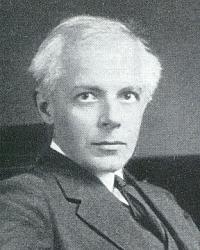
Béla Bartók (March 25, 1881-September 26, 1945), the greatest Hungarian composer, was one of the most significant musicians of the twentieth century. He shared with
Clara Barton (December 25, 1821-April 12, 1912) was both famous and honored in her lifetime—and has a well-earned place in American history—as the angel of
John Relly Beard (August 4, 1800-November 22, 1876), British educational reformer and minister, was a militant exponent and populariser of mid-Victorian Unitarianism. His most enduring
Henry Whitney Bellows (June 11, 1814-January 30, 1882) was minister of the First Congregational Church of New York City (now the Unitarian Church of All
Henry Bergh (August 29, 1811-March 12, 1888) was the founder of the American Society for the Prevention of Cruelty to Animals (ASPCA) and was instrumental
Giovanni Giorgio Biandrata (or Blandrata) (1516-May 5, 1588), physician and counsel to the courts of Eastern Europe, brought the ideas of Michael Servetus and the
Leon Milton Birkhead (April 28, 1885-December 1, 1954), a controversial Methodist and Unitarian minister, achieved national prominence in the 1940s as director of the Friends
Herman Bisbee (October 29, 1833-July 6, 1879) is best known as the only American Universalist minister to have been found guilty of heresy. After losing
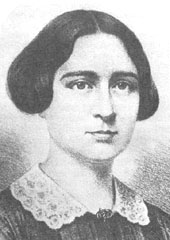
Antoinette Louisa Brown Blackwell (May 20, 1825-November 5, 1921), a women’s rights activist and social reformer, was the first American woman to be ordained as
Elizabeth Blackwell (February 23, 1821-May 31, 1910) was the first woman to earn a degree from medical school in the United States and the first
Harriot Stanton Blatch (January 20, 1856-November 20, 1940) was a leader in the woman suffrage movement, a writer and an advocate for labor reform. She
Sir Adrian Cedric Boult (April 8, 1889-February 22, 1983) was one of the foremost British conductors of his time. Well-known for his advocacy and performance
Georgene Esther Bowen (February 13, 1898-September 1984) was a Universalist missionary and social worker. She worked at the Blackmer Home for underprivileged girls in Japan
John Boyden (May 14, 1809-September 28, 1869), a Universalist minister, politician, and social reformer, was a disciple of Hosea Balou and the longtime pastor of
George Bradburn (March 4, 1806-July 26, 1880), antislavery politician, was a journalist, lecturer, and Unitarian minister. He was a friend and co-worker in the abolitionist
Franklin Bradley (February 2, 1831 – May 3, 1909) was a Non-Subscribing Presbyterian minister in Northern Ireland and England and the first minister to Unitarians
Bruce Wallace Brotherston (August 12, 1877-April 17, 1947) was a Universalist minister, author, and educator. After 16 years in the ministry he went on to
Florence Buck (July 19, 1860-October 12, 1925) was a Unitarian minister at a time when women ministers were uncommon and a leader in the development
Celia Burleigh (September 18, 1826-July 25, 1875) was ordained at Brooklyn, Connecticut, on October 5, 1871, the first woman to enter Unitarian ministry. Had this
Harold Hitz Burton (June 22, 1888-October 28, 1964) was a Unitarian layman, lawyer, and politician who served as Moderator of the American Unitarian Association (AUA).
John Caldwell Calhoun (March 18, 1782-March 31, 1850) was a United States representative, senator, secretary of war, secretary of state, and vice president. A political
Angus de Mille Cameron (June 9, 1913-November 23, 1996) was one of a small group of Canadian ministers whose introduction into Canada in the 1940s
Ida Maud Cannon (June 29, 1877-July 8, 1960) was a pioneer in the hospital social service movement which began in Boston in the first decade
Alice Cary (April 26, 1820-February 12, 1871) and Phoebe Cary (September 4, 1824-July 31, 1871) were in their day well known and loved for their
Ernest Cassara (June 5, 1925-April 10, 2015) was a Unitarian and a Universalist minister, a scholar of American Universalism, and a professor of history. He
Sir (Joseph) Austen Chamberlain (October 16, 1863-March 16, 1937), British politician and statesman, was the son of Joseph Chamberlain and the older brother of Neville
Joseph Chamberlain (July 8, 1836-July 2, 1914), a British industrialist, reformer, and statesman, was a key cabinet minister in Liberal and Conservative governments. In his
Field Marshal Sir Neville Bowles Chamberlain (January 10, 1820-February 3, 1902), a significant figure in Britain’s wars on the Indian subcontinent, was the only person
George Leonard Chaney (December 24, 1836-April 19, 1922) was an established New England Unitarian minister whose major contribution to Unitarianism was his work in the
Henry Trevett Channing (January 17, 1760-August 27, 1840) was the uncle and mentor of the leading exponent of American Unitarian Christianity, William Ellery Channing. He
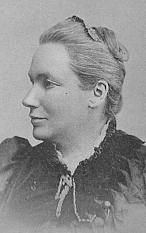
Augusta Jane Chapin (July 16, 1836-June 30, 1905), Universalist minister and educator, was one of the earliest women to be ordained in ministry. She was
Edwin Hubbell Chapin (December 29, 1814-December 26, 1880), Universalist minister, author, lecturer, and social reformer, was one of the most popular speakers in America from
James Freeman Clarke (April 8, 1810-June 8, 1888), an influential Unitarian minister, social reformer, popular author, scholar, and institutionalist, founded and ministered to a new
Frances Power Cobbe (December 4, 1822-April 5, 1904) was one of the most influential figures in the British Unitarian movement of her day. Although she
Alfred Storer Cole (October 9, 1893-January 5, 1977) was a minister, scholar, writer, librarian of the Universalist Historical Society and, for a quarter century, teacher
George Willis Cooke (April 23, 1848-April 30, 1923), born in Comstock, Michigan, was a Unitarian minister, writer, editor, and lecturer best known now for his
John Cordner (July 3, 1816-June 22, 1894) was unquestionably the most influential figure in setting the tone for the emerging Unitarian movement in nineteenth-century Canada.
Henry Noble Couden (November 21, 1842 – August 22, 1922) was Chaplain of the United States House of Representatives for twenty-five years (1895-1921). After being
John Albert Cousens (November 17, 1874-July 2, 1937), a Universalist businessman and educator, was for eighteen years the president of Tufts College. John was born
Caroline Bartlett Crane (August 17, 1858-March 24, 1935) was a Unitarian minister, suffragist, civic reformer, and social gospel advocate. Among the first wave of American
Florence Ellen Kollock Crooker (Jan. 18, 1848 to April 21, 1925) was a Universalist minister and advocate of temperance and women’s suffrage. A capable organizer
Edward Estlin Cummings (October 14, 1894-September 3, 1962) was one of America’s leading 20th century poets. A prolific poet and painter, Cummings (in his poetry
Celio Secondo Curione (May 1, 1503-December 24, 1569), a classical scholar and professor of eloquence, was a leading religious and humanistic voice in the community
Caroline Wells Healey Dall (June 22, 1822-December 17, 1912), author, journalist, lecturer and champion of women’s rights, was a Unitarian community service worker, minister’s wife
Charles Henry Appleton Dall (February 12, 1816-July 18, 1886), a Unitarian minister to the poor in the United States and an early Unitarian minister in
A. Powell Davies (June 5, 1902-September 26, 1957), a Unitarian minister, was a renowned orator and a prominent social activist for civil liberties, government accountability,
The Universalist society in Oxford, Massachusetts, one of the earliest Universalist churches in America, hosted the conventions which led to the creation of the Universalist
George de Benneville (July 26, 1703-March 19, 1793), a physician, was a universalist evangelist in Europe and an early advocate of the doctrine of universal
Charles Dickens (February 7, 1812-June 9, 1870) is often considered the finest English novelist of the 19th century. His enduring comic characters are part of
Albert Charles Dieffenbach (July 4, 1876-October 6, 1963), a Unitarian minister and religious journalist, was the editor of The Christian Register, religion editor of The
John Hassler Dietrich (1878-1957), minister for almost a quarter of a century at the First Unitarian Society in Minneapolis, Minnesota, was among the first Unitarian
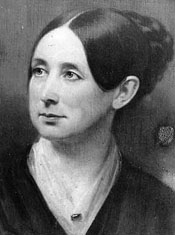
Dorothea Lynde Dix (April 4, 1802-July 18, 1887), in her early career a teacher and author of children’s books, was, in her unique and international
Emily Taft Douglas (April 19, 1899-January 28, 1994) was a congresswoman, civil rights activist, early feminist, actress, author, and Unitarian lay leader. Throughout her life
John Sullivan Dwight (May 13, 1813-September 5, 1893) made important contributions to the Transcendentalist movement. A dedicated member of the Brook Farm commune while it
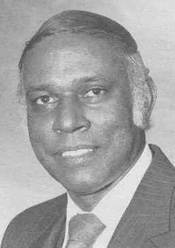
David Hilliard Eaton (1932-1992) was the first African American to serve as senior minister in a large Unitarian Universalist church. During his tenure, All Souls
James Henry Ecob (September 4, 1844-November 6, 1921) was a minister in Unitarian, Presbyterian, and Congregational churches, and participated in and advocated for interdenominational worship
Abigail Adams Eliot (October 9, 1892-October 29, 1992) was a pioneer of the nursery school movement. She is best known for her work with young
Frederick May Eliot (September 15, 1889-February 17, 1958), longtime minister of Unity Church, St. Paul, Minnesota and Chair of the Unitarian Commission on Appraisal, served
Jesse Babcock Ferguson (January 19, 1819-September 3, 1870), a renowned orator and minister in the Antebellum South, converted to universalist and unitarian beliefs. His conversion
Ebenezer Fisher (February 6, 1815-February 21, 1879), Universalist minister and educator, was the first president of the Theological School at St. Lawrence University in Canton,
Arthur W. Foote II (January 18, 1911-December 9, 1999) was a Unitarian minister who chaired the commission that prepared the first hymnal after the Universalist
Arthur Foote (March 5, 1853-April 4, 1937), Unitarian church musician and influential music teacher, was a leading member of a group of composers known as
Henry Wilder Foote (February 2, 1875-August 27, 1964) was a Unitarian minister, scholar, teacher, and hymnologist. As Chair of a joint Universalist and Unitarian commission
John Murray Forbes (February 23, 1813-October 12, 1898), a leading Boston businessman and philanthropist, financed and operated a great nineteenth century industrial empire. He and
James Freeman (April 22, 1759-November 14, 1835), Minister of King’s Chapel in Boston for 43 years, was the first preacher in America to call himself
Jacob Frieze (1789-1880), a Universalist minister from New England, was an early missionary to North Carolina. After retiring from the ministry he became a Rhode
Arthur Buckminster Fuller (August 10, 1822-December 11, 1862) was a Unitarian clergyman who endeavored to give the Unitarian Church appeal to all social classes and
(May 16, 1836-December 15, 1913), educator and minister, was the third Unitarian minister to arrive in New Zealand. As a school inspector he influenced educational
Ezra Stiles Gannett (May 4, 1801-August 26, 1871) was a prominent Unitarian minister, editor, and a founder of the American Unitarian Association (AUA). He was
Elizabeth Cleghorn Stevenson Gaskell (September 29, 1810-November 12, 1865), a lifelong Unitarian and the wife of an eminent Unitarian minister, was the author of a
Caroline Howard Gilman (October 1, 1794-September 15, 1888), one of the most popular women writers of the first half of the nineteenth century, was born
John Charles Godbey (September 26, 1927-November 5, 1999), a Unitarian Universalist minister, scholar, historian, and teacher, spent his entire professional life, 1962-96, as a faculty
Judith Ripley Goodenough (October 25,1942-September 18, 1990), who wrote as J. B. Goodenough, was a Unitarian Universalist poet and musician. Judith, also known as Judy,
Don Speed Smith Goodloe (June 2, 1878 – September 2, 1959), founding principal of what is now Bowie State University, was the first African-American graduate
Alexander Gordon (June 9, 1841-February 21, 1931), a Unitarian minister and educator, was a prominent historian of religion, particularly of religious dissent. Describing himself as
Eleanor Elizabeth Gordon (October 10, 1852-January 6, 1942) was part of an informal network known as the “Iowa Sisterhood” of Unitarian women ministers and often